2024 SFB Elections: Biographies
Please review the biographies and vision statements of each President-Elect and Member-at-Large candidate below before casting your vote.
CAST YOUR BALLOT
OFFICER NOMINEES
PRESIDENT-ELECT
The President-elect shall become familiar with the duties of the President and shall, at all times, cooperate and assist with the duties of that office. In the absence of the President, the President-elect shall preside at the meetings of the Society, the Council and the Board of Directors, and perform the duties and exercise the powers of President. The term of office is for a period of one year without succession. The President-elect shall coordinate the duties of Council regarding the long-range direction and future of the Society.
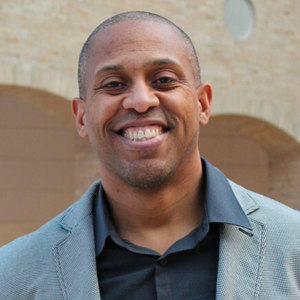
EDWARD A. BOTCHWEY, PhD
Georgia Institute of Technology
BIOGRAPHICAL SKETCH: I have dedicated my career to advancing equitable, collaborative, and interdisciplinary biomaterials research that addresses unmet needs in global healthcare. My research uniquely combines disciplines such as regenerative medicine, immunology, bio-manufacturing, and hematological disease, with the aim of bringing convergence solutions closer to clinical applications. I earned a BS in Mathematics in 1994 and completed my MS in 1998 and PhD in 2002 in Bioengineering at the University of Pennsylvania, where I was a GEM MS and PhD Fellow, and later a Merck UNCF postdoctoral Fellow.
As a Professor in the Coulter Department of Biomedical Engineering at Georgia Tech / Emory, my research integrates diverse areas – regenerative medicine, immunology, bio-manufacturing, and hematological disease – to design biomaterials that orchestrate healing and inflammation resolution at the molecular level. Our innovative approaches, including reprogramming local immune cell metabolism and biosynthesis of bioactive lipids, have earned recognition through the Presidential Award for Science, Engineering & Mentoring and the SFB Mid-Career Award.
Building upon the SFB's impactful legacy, my vision steers the organization towards novel horizons in biomaterials research, ethical innovation, and global healthcare solutions. My leadership experience aligns with this vision for the society. As the inaugural SFB DEI Committee Chair, I championed inclusivity, recognizing that diverse voices are essential for scientific progress. As co-chair of the Southeast Regional SFB Meeting in 2024, we are harnessing and enhancing the transformative power of multi-institutional and multidisciplinary collaboration, which I will continue to catalyze.
My commitment to Diversity, Equity, and Inclusion (DEI) is evident in my lab work and local outreach activities. As a member and leader within the Institute for Bioengineering and Biosciences (IBB) at Georgia Tech, I led the institute’s first DEI committee, connecting stakeholders, fostering dialogue, and driving impactful initiatives. These activities included establishing IBB’s first Anti-Racism Distinguished Speaker series and organizing multiple town halls dealing with complex issues relating to Atlanta's protests of police violence, national dialogue on changes in affirmative action policies, and responses to the COVID-19 pandemic. I also oversaw the creation of new research seed grant mechanisms to facilitate the development of new models and collaborative research to mitigate healthcare disparities. Additionally, I co-developed "Power Game" workshops that focus on privilege dynamics, which were offered to trainees and faculty at multiple institutions.
In collaboration with the Cell Manufacturing Technologies Engineering Research Center (CMaT) and the International Society for Cellular Therapy (ISCT), I co-developed an online curriculum training for trainees and practitioners in cell product manufacturing. These efforts highlight the potential of academic and society partnerships in promoting education and workforce development, which I will continue to cultivate. These efforts, alongside my dedication to mentoring underrepresented students, exemplify my passion for building a welcoming and equitable biomaterials community for all.
As your President, I pledge to advocate, collaborate, and initiate. Together, we can unite SFB's diverse voices into an innovation symphony, ensuring global benefits from biomaterials. My experience and passion for people-centered science equip me to lead SFB. Let's collaborate to unleash the full potential of biomaterials for human health.
VISION STATEMENT: Rooted in the SFB’s storied legacy, my vision charts a course towards a future where innovation in biomaterials is fueled by a tapestry of diverse, inclusive, and globally connected researchers and industry partners. Inspired by bioengineering pioneer Bob Nerem's wisdom that "research, like life, is a people business," I am committed to nurturing a community where personal bonds and the spirit of collaboration lay the groundwork for scientific breakthroughs.
SFB has equipped me to inspire the next wave of biomaterials scientists, and with the World Congress on the horizon, we are presented with an unparalleled opportunity to assert our global leadership. To realize this, we must fortify partnerships, engage with developing nations, and harness our diversity, informed by my multicultural background and belief in the power of early inclusion. By bolstering our outreach, we can ensure that the SFB embodies a wealth of perspectives, thereby enriching our collective research and innovation. Our goal is to bolster conference participation from developing nations by 20% within the next two years through targeted outreach, building a diverse, multigenerational community dedicated to transforming healthcare and biomaterials science.
Groundbreaking discoveries in our field must be pursued with an unwavering commitment to ethical and environmental stewardship. Embedding sustainability into the fabric of biomaterials—from imparting eco-friendly solutions in our teaching to shaping responsible regulatory frameworks—will enable us to steward emerging technologies such as CRISPR and personalized medicine with integrity and foresight. We aim to launch curriculum symposia centered on sustainability within a year, striving for adoption by half of our member institutions within three years.
Interdisciplinary collaboration is the key to unlocking the full potential of biomaterials. We require a fusion of teamwork across disciplines and robust industry partnerships, drawing parallels with the principles of industrial ecology. My proposal includes the establishment of two regional innovation hubs within the next two years, fostering academia and industry collaboration to tackle local and global challenges. These hubs, bolstered by an invigorated Industry Advisory Board and Special Interest Groups (SIGs), are poised to spark tangible innovation. Furthermore, initiatives such as corporate memberships, internships, and technology transfer programs will cultivate a dynamic ecosystem where the SFB stands as a conduit for industry solutions and partnerships.
Envisioning the future of biomaterials, we must kindle a vibrant community where seasoned experts and burgeoning scholars are united by comprehensive mentorship, inclusive scholarships, and awards that celebrate diverse excellence. By harnessing social media and technology, we can extend our reach, invigorate young intellects, and amplify the SFB's renown for premier research. Implementing a mentorship program that pairs established researchers with underrepresented students promises to surge student research engagement by 75% within one year.
At the heart of the SFB lies an unyielding dedication to research excellence and integrity. We are champions for equitable resource distribution and unrelenting adversaries of discrimination. By steadfastly upholding the highest standards of scientific rigor and ethical conduct, we will craft a future in which biomaterials not only revolutionize healthcare but also forge a more just and sustainable society.
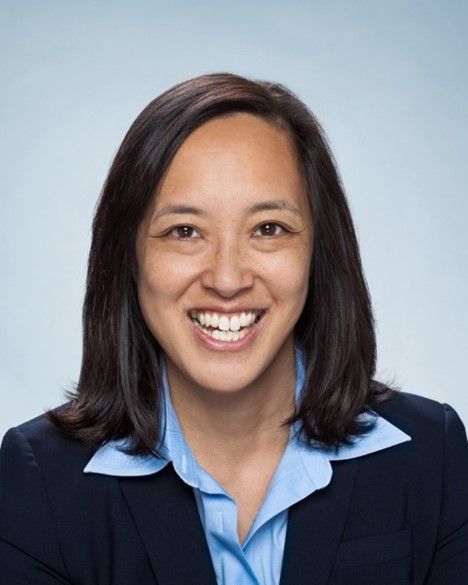
JOYCE WONG, PhD
Boston University
BIOGRAPHICAL SKETCH: Dr. Joyce Wong is a Professor of Biomedical Engineering and Materials Science & Engineering and the Inaugural Director of ARROWS (Advance, Recruit, Retain & Organize Women in STEM, Office of the Provost) at Boston University. She received her SB in Materials Science & Engineering and her PhD in the Program for Polymer Science & Technology at the MIT. Her postdoctoral work at the UC, Santa Barbara focused on colloid and surface science. Her work spans basic biomaterials science of the cell-material interface to translational applications. Research projects focus on theranostics, pediatric vascular tissue engineering, and she is currently pivoting her research towards women’s reproductive health. Dr. Wong’s research has been funded by NIH, NSF, industry (e.g. Pfizer), and private foundations (e.g. The Hartwell Foundation; Grand Challenges Canada). Dr. Wong has received prestigious awards including the 2020 Clemson Award for Basic Research (SFB), NSF CAREER Award, and is an elected Fellow of AIMBE, BMES, AAAS, NAI, IAMBE, CRS, and ICF-BSE. Dr. Wong holds national and international advisory positions to provide her expertise in biomaterials: she currently serves on the Advisory Board for NIH NIBIB Council and on CÚRAM’s Scientific Advisory Board (Ireland). Dr. Wong also has several editorial positions: since 2021, she has been a Deputy Editor at Science Advances, Associate Editor at Stem Cell Research & Therapy. She also serves on the Editorial Board of several other journals including Polymer Reviews; Biointerphases; Cellular and Molecular Bioengineering; Regenerative Therapy; Scientific Reports; IEEE Open Access Journal of Engineering in Medicine and Biology; and Bioengineering. Dr. Wong is strongly committed to promoting equity: she led Boston University’s Bronze Award for AAAS SEA Change (STEM Equity Achievement) and is part of the BU team recently awarded a NIH Prize for Enhancing Faculty Gender Diversity in Biomedical and Behavior Science (2021) from the Office of Research on Women’s Health.
Dr. Wong was elected SFB member-at-large and served from 2020-2021. During her tenure, she instituted changes to motivate members to submit news that subsequent SFB members-at-large have continued: broadening the type of news and including a submission form that includes headshots to increase member visibility. Dr. Wong was elected onto the SFB Awards, Ceremonies, and Nominations Committee (2021-2022). Since 2009 when she was elected Vice Chair of the Biomaterials/Tissue Engineering GRC, Dr. Wong has continually held leadership positions in many societies (e.g. Board of Directors, Chair(s) and member(s) of committees, Meeting Program Co-chair), that partner with SFB. These experiences combined with her BU ARROWS Director position prepared her for the AIMBE (American Institute of Medical and Biological Engineering) presidency (ending March 2024) where she recently oversaw the successful process of hiring a new Executive Director (ED). Together with the new ED, Dr. Wong has been focused on revitalizing AIMBE’s Industry Council and broad member engagement. Notably, SFB is a member of AIMBE’s Council of Societies, which provides advocacy tools and programming for SFB. Dr. Wong has successfully worked with past and present leaders of SFB and related societies and is therefore well-positioned for SFB President-Elect.
VISION STATEMENT: Two pivotal moments in my career come to mind when I think of SFB. First, late in my PhD career, my top postdoc mentor choice (Jacob Israelachvili) responded to my inquiry with ‘Sorry, no positions available’. However, when I noticed he was a keynote speaker at the 1994 SFB annual meeting (Boston), I contacted him again to ask for a meeting at SFB. My persistence paid off: I joined his lab, which led to my landing a faculty position at Boston University. Second, I attended the 2002 SFB meeting – this time as a mentor: one of my PhD students gave her debut national meeting oral presentation. SFB launched my student’s career, and she is now working in industry advocating for accessible STEM education. The SFB community also helped shape my transition from trainee to mentor.
My story is not unique: SFB has many trainee members – some of whom have gone on to become faculty or leaders in industry. If elected the next President-Elect, I would continue to support the existing impactful programs to empower all SFB members to reach their goals specific to their career stage. Moreover, I would go one step further to work with the SFB Board and Leadership to identify opportunities to expand membership representation in government (currently at 1%). Increasing conversations at annual meetings between trainees and experts from regulatory agencies or other key governmental stakeholders could demystify career opportunities supporting successful biomaterials technology translation. This would support SFB’s mission of being a ‘multidisciplinary society of academic, healthcare, governmental and business professionals dedicated to promoting advancements in all aspects of biomaterial science, education and professional standards to enhance human health and quality of life’.
SFB’s mission of enhancing human health and quality of life requires an understanding of the broader ecosystem and the bringing together of key stakeholders to identify accelerators as well as barriers for translation. A large part of this involves advocacy and public outreach of important issues that affect the biomaterials community. Because I have served in various leadership roles in many different biomaterials-related societies that have partnered with SFB (e.g. AIMBE, BMES, MRS, AAAS, ACS), I am uniquely poised to bring together these stakeholders.
A specific on-going example of biomaterials-related policy in which I am involved through AIMBE and partner organizations aims to raise awareness with Congress, state lawmakers, and the public that certain fluoropolymers are critical for life-saving medical devices. Why we biomaterials scientists/engineers should care is that proposed broad bans run the risk of creating supply chain shortages for the medical device industry. Importantly, such issues could significantly impact the ability to provide technological solutions to enhance human health. I would work with the SFB Board, SIGs, committees, leadership, and partner organizations such as AIMBE to identify biomaterials-related policy opportunities to ‘enhance human health and quality of life’ and to integrate policy training broadly into SFB programming.
In summary, I would be honored to serve as the next SFB President-Elect and am excited to give back to the SFB community.
MEMBER-AT-LARGE
The Member-at-Large shall serve as an unencumbered representative of the membership at meetings of both the Board of Directors and Council. The Member-at-Large shall serve for a period of one year.
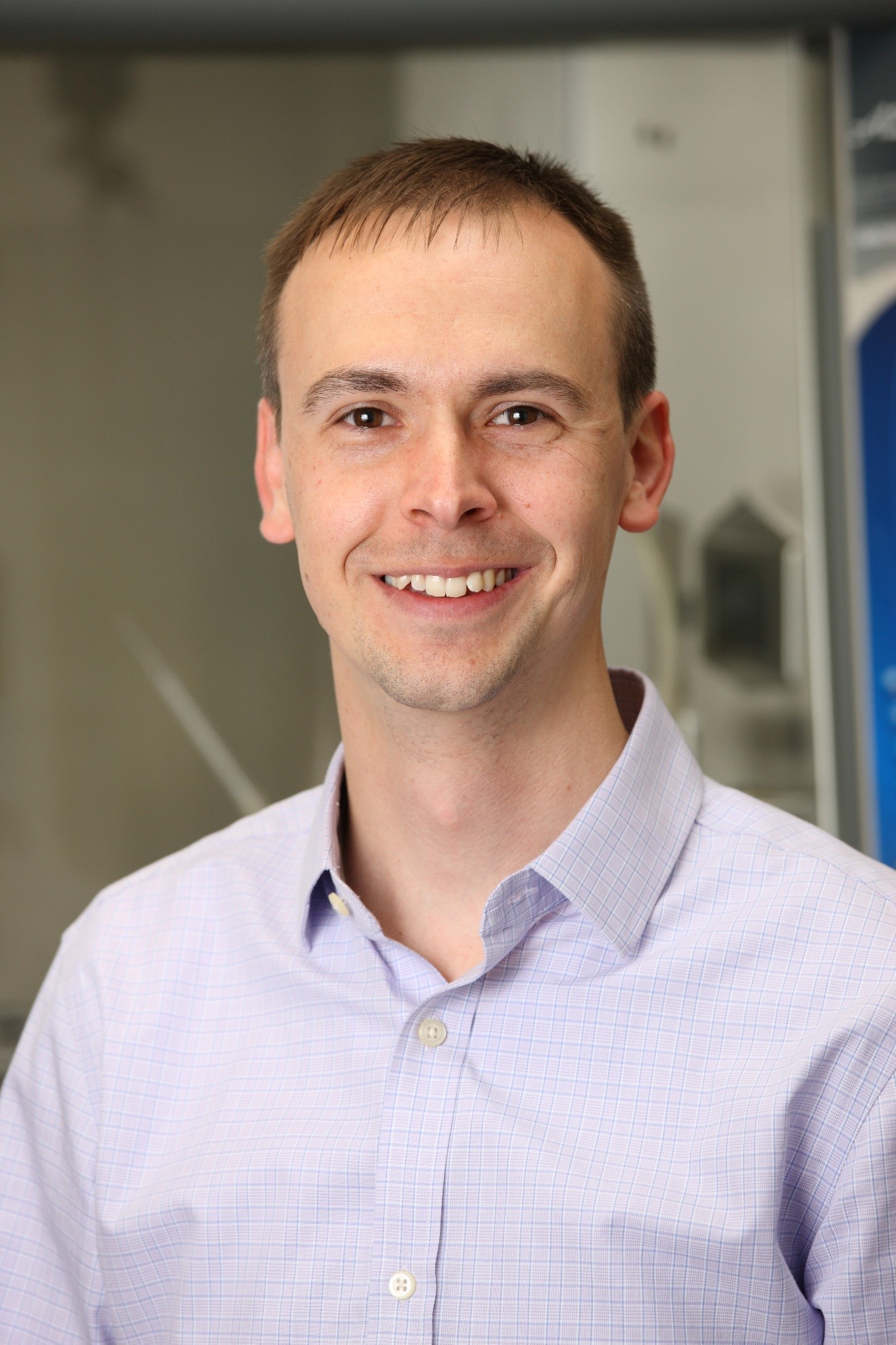
KYLE LAMPE, PhD
University of Virginia
BIOGRAPHICAL SKETCH: Dr. Kyle Lampe is an Associate Professor of Chemical Engineering at the University of Virginia, and professor, by courtesy, of Neuroscience and Biomedical Engineering. The Lampe Group investigates biomaterials for tissue engineering, regenerative medicine, and drug delivery within the central nervous system. His group’s mission is to create a supportive environment for science and engineering trainees to study neural regeneration via integration of cell and material function. The Lampe Group is a proud supporter of students from first generation, low income, or rural families.
Prof. Lampe received his B.S. in Chemical Engineering from the Missouri University of Science and Technology (Rolla, MO), which honored him as a Distinguished Young Alumni in 2020. He completed his Ph.D. in Chemical Engineering from the University of Colorado, Boulder before training as a NIH NRSA postdoctoral scholar at Stanford University in the department of Materials Science and Engineering. Prof. Lampe began leading his group at UVA in 2014. He
made the American Society of Engineering Education “20 under 40” list of faculty for his mentoring, teaching, and research. He received a career development award as part of the inaugural class of Translational Health Institute of Virginia (THRIV) scholars at UVA. Dr. Lampe’s research is currently supported by NSF, NIH, and the Commonwealth Health Research Board.
Prof. Lampe has been a member, organizer, and attendee of SFB since he began his faculty position. He now chairs the SFB Membership Committee and serves as the Secretary/Treasurer for the Engineering Cells and Their Environments SIG. Leadership in other professional organizations includes serving as Neural Engineering track chair for BMES 2020, Engineering Fundamentals in Life Science Area Chair for AIChE 2018 (and vice chair for the two years prior), and as an elected Director for the Materials Engineering and Science Division of AIChE from 2019-2021.
VISION STATEMENT: I am humbled to be considered for the SFB Member at Large position. Prior to beginning my faculty position, I had never previously attended SFB, but it quickly became my professional home. SFB has provided me with countless opportunities to build my career through the annual conferences, and now through various servant leadership roles. I hope to build on my work with the Membership Committee and advocate for ways we can broaden the society and make it the long-term professional home for folks throughout their careers, including academic, industrial, and government roles. In my role as an AIChE Director, one specific duty is that I and a fellow director were tasked with diversifying the candidates for election within this AIChE Division. By intentionally recruiting students to my lab, and to the department (at both UG and grad levels), I work to develop a culture which safely challenges and supports, nurturing folks who may not yet have realized their rockstar potential. I think this should be a key goal of our professional society as well. Through SFB, I hope to help provide opportunities to learn from each other, and nurture our professional, and personal, growth.
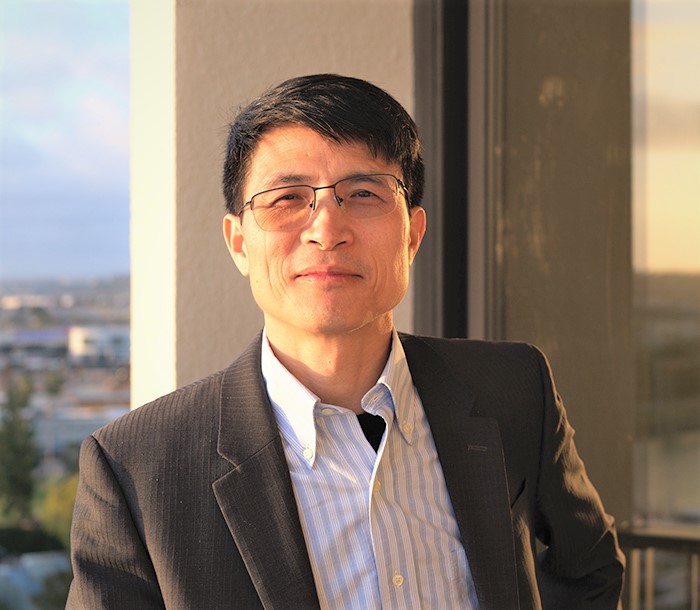
BINGYUN LI, PhD
West Virginia University
BIOGRAPHICAL SKETCH: Dr. Bingyun Li is a Full Professor in the Department of Orthopaedics at West Virginia University, where he is the Director of the Nanomedicine Laboratory. Dr. Li joined West Virginia University as an Assistant Professor in 2005 and was promoted to Associate and Full Professor in 2011 and 2017, respectively. He has been a fellow of the American Institute for Medical and Biological Engineering since 2018. Dr. Li’s research focus is orthopaedic biomaterials with an emphasis on innovative therapeutics and biomaterials for infection prevention and treatment. He has published 111 peer-reviewed journal papers (h-index=52), 11 book chapters, four edited books, and 14 U.S. patents and patent disclosures. His group has produced 157 scientific abstracts and he has given 68 invited talks including three Keynote Talks at national and international conferences. He has mentored and trained 117 trainees; 31% of them are women and people from underrepresented groups in sciences.
Dr. Li has been active in the Society for Biomaterials (SFB) since the beginning of his career. He is currently chairing the Liaison Committee (2020-2024) which will end in 2024. The Liaison Committee supports inter-society collaboration opportunities (e.g., joint events) to enrich the experiences and benefits of our SFB members. For instance, in recent years, we have had successful joint SFB/MRS virtual workshop series and SFB symposia at MS&T conferences. Moreover, Dr. Li has served multiple times as the Vice Chair (2011-2013 and 2013-2015) and Chair (2015-2017 and 2017-2019) of the Orthopaedic Biomaterials Special Interest Group (SIG). During those years, the Orthopaedic Biomaterials SIG hosted various social events for SIG members, sponsored many symposia at SFB annual meetings and World Biomaterials Congress meetings, promoted member recognition by giving out abstract awards, and significantly increased the SIG membership. The Orthopaedic Biomaterials SIG also co-sponsored multiple joint symposia with other societies including the Orthopaedic Research Society. In addition, Dr. Li has been an abstract reviewer (2006-present) for the SFB annual meetings and has organized and chaired about 20 symposia. Dr. Li is also active in the Orthopaedic Research Society, American Society for Microbiology, Materials Research Society, American Chemical Society, and Chinese Association for Biomaterials, where he has served in various roles including President, Treasurer, Secretary, Chief Editor of newsletter, Topic Chair, committee member, etc.
VISION STATEMENT: The Society for Biomaterials (SFB) has always been my academic society home and it will be a great honor to serve as a Member-at-Large. I will dedicate my energy and passion to serving our SFB community.
If elected, I will engage with various committees and focus on initiatives and programs that will increase the participation of students and early career investigators; I will advance their symposium ideas in the annual scientific programs. I will support the recruitment and retention of new members including those from academia, industry, and government as well as clinicians. I will strive to promote networking opportunities for all of our members.
As a basic scientist working in a clinical department (i.e., Orthopaedics) for about 20 years, I appreciate the great interactions between basic scientists and clinicians. I also greatly appreciate opportunities that bring engineers, biologists, and clinicians together to solve clinical problems. As a Member-at-Large, I will help our SFB build stronger connections among engineers, biologists, and clinicians by promoting multidisciplinary symposium ideas and events. I have served in various leadership roles in multiple societies and have mentored more than 100 trainees. I believe my experience will enable me to serve our SFB community well, and it would be my privilege to serve as a Member-at-Large.
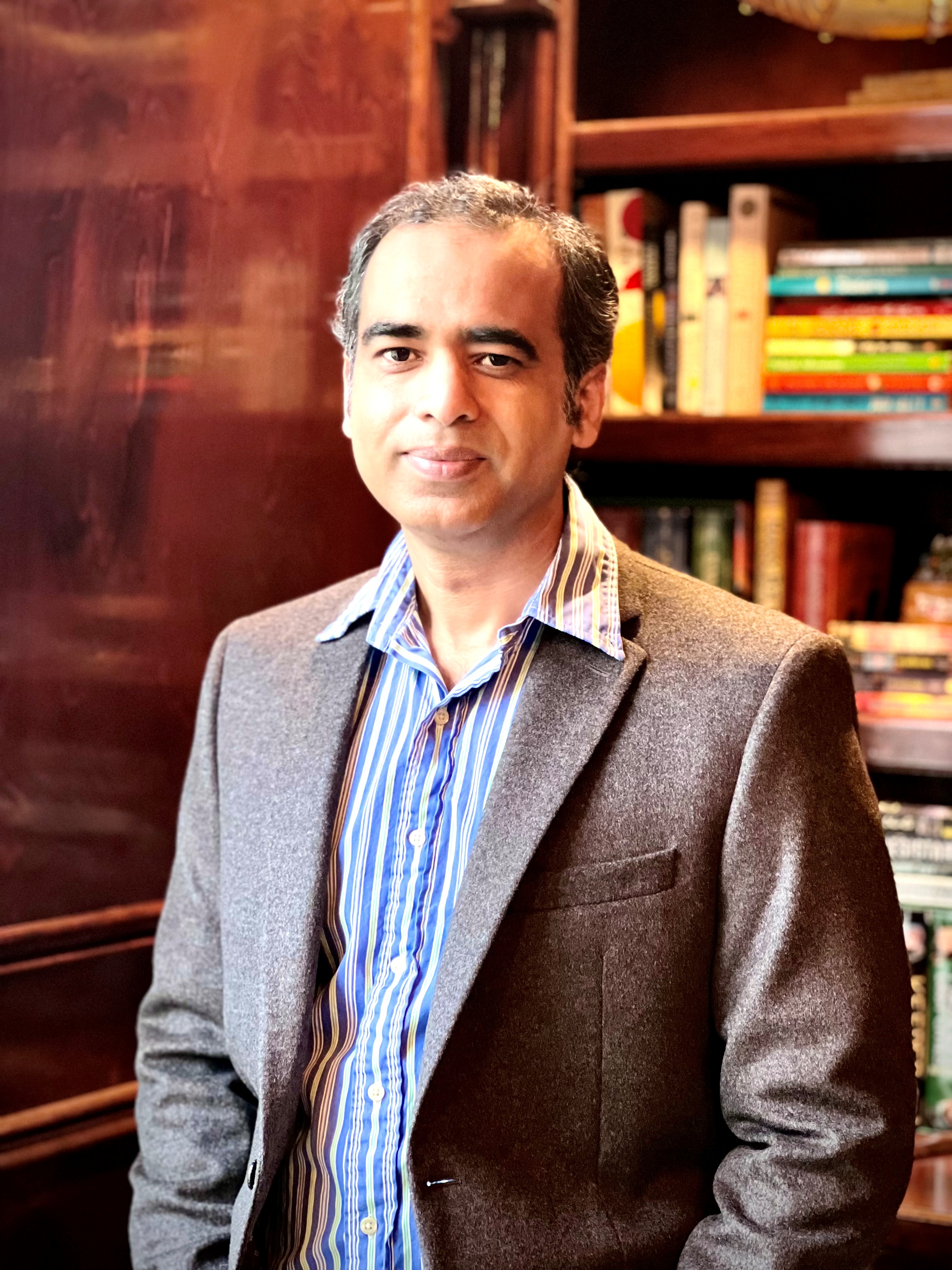
ANKUR SINGH, PhD
Georgia Institute of Technology
BIOGRAPHICAL SKETCH: Ankur Singh is a Woodruff Faculty Fellow and Professor at George W. Woodruff School of Mechanical Engineering at Georgia Institute of Technology and Wallace H. Coulter Department of Biomedical Engineering at Georgia Tech and Emory University. He serves as the Director of the Center for Immunoengineering at Georgia Tech. Before Georgia Tech, he was a tenured Associate Professor at Cornell University. His laboratory develops immune organoids and enabling technologies to understand healthy and diseased immune cells and translate therapeutics. He has received funding from the National Institute of Health, National Science Foundation, Wellcome Leap HOPE, Department of Defense, Defense Threat Reduction Agency, the Curci Foundation, and the Lymphoma and Leukemia Society. He has published >70 articles in peer-reviewed journals, including Nature Materials, Nature Methods, Nature Nanotechnology, Nature Immunology, Nature Communications, Nature Reviews Materials, Nature Protocols, Science Advances, Cell Reports, PNAS, Blood, and Advanced Materials. He has written multiple editorials for Science Translational Medicine. He is a recipient of the NSF CAREER Award, Society for Biomaterials Mid Career Award, Society for Biomaterials Young Investigator Award, CMBE Young Innovator Award, CMBE Rising Star Award, 3M Faculty Award, DoD Career Award, Georgia Tech CIOS Teaching Award, Cornell’s Teaching Excellence Award, and Cornell’s Research Excellence Award. His immune organoids were identified among the Top 100 Discoveries of 2015 by Discover Magazine. He is the Founder and past Chair of the Immune Engineering SIG at the Society for Biomaterials and the ImmunoDelivery Focus Group at the Controlled Release Society. He currently serves as the Associate Editor for Science Advances, Biomaterials, and Cellular and Molecular Bioengineering. He serves on the Executive Advisory Board of Advanced NanoBiomed Research journal and on the editor boards of Scientific Reports, Current Opinion in Biomedical Engineering, and J of Immunology and Regenerative Medicine journals. He is a standing study section member of Cellular and Molecular Technology at the NIH and also serves on the tenure advisory committee of NIH intramural investigators at NIBIB. Dr. Singh is passionate about mentoring students, postdocs, and early-stage faculty. He has served as an advisor to 14 Ph.D. students and 6 Master's students. Trainees from his lab have received >40 awards, including a Marie Curie Postdoctoral Fellowship, NSF Graduate Research Fellowship, NIH T32 training fellowships, STAR awards from the Society for Biomaterials; a Rising Star in Black & Latin Voices in Biomaterials from the Society for Biomaterials; and Biomedical Engineering Society Career Development Award, among others.
VISION STATEMENT: I am deeply honored to be nominated for the position of Member-at-Large. I have been an active member of SFB for more than 15 years as a student, post-doc, and faculty member. I am deeply indebted to the SFB for awarding me a 2017 Young Investigator Award and a 2022 Mid Career Award. In addition to regularly organizing sessions at the annual meeting, I have provided significant leadership within SFB and our community as the Founder and twice-elected Chair of Immunoengineering SIG, member of the Program Committee for the annual meeting (2019), and member of the Awards and Nomination Committee (2022-2023). I am currently serving as a Co-Chair of the 2024 SFB Fall Symposium for SouthEast. In addition to outstanding diverse professional opportunities for scientific discussions, networking, and interactions with industry and government, the Society has provided a nurturing environment where I have developed many good and lasting collaborations and friendships. To promote and lead the field of biomaterials and immuno-engineering and bring together scientists from multiple disciplines, in 2018, I founded the ImmunoDelivery focus group at the Controlled Release Society and was elected as the inaugural chair for 2 years.
I envision SFB as a flourishing global community comprising leaders, researchers, experts, and educators across academia, industry, and government. This community will exert profound and enduring influences on every facet of biomaterials science, engineering, and policy. If elected Member-at-Large, I will focus my efforts on three major areas:
Advocate for the entire membership. It is essential to involve our varied members in both established and innovative activities throughout the year, extending beyond the annual meeting to enhance the overall value of membership. A pivotal element of this initiative is fostering effective communication between students, academics, industry professionals, government representatives, and the Society's Council and Executive Board. By enhancing these communication channels, we aim to pinpoint specific goals, allocate resources strategically, and thereby optimize membership value while fostering the growth of SFB.
Cultivate Scientific Excellence and a Supportive, Nurturing Environment. The annual and regional gatherings, such as Biomaterial Days, serve as optimal focal points for the interchange of scientific ideas and community-building endeavors. Collaborating with leadership and program committees, I will strive to enrich both the scientific content and the social dimensions of these pivotal meetings.
Broaden the Influence and Expand the Impact of SFB. Broaden the Influence of SFB. To make a meaningful impact on human health, our initiatives must transcend the boundaries of our society. I am committed to expanding our reach by enhancing marketing and visibility efforts, emphasizing the positive impacts and contributions of the biomaterials community, and establishing connections with other professional groups that value biomaterials expertise.
If elected and granted the privilege of holding this position, I would be honored to continue my service to SFB. I pledge to dedicate myself diligently and energetically to enhance the well-being of the SFB community.

